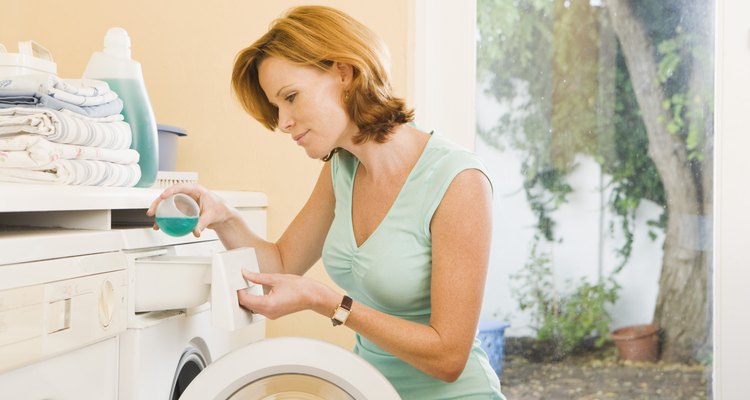
Jupiterimages/Pixland/Getty Images
Hard water is caused by an excess of minerals, usually magnesium and calcium, in the water. The presence of these minerals not only adversely affects the taste of the water, but it also poses several problems when it comes to laundry. Hard water can cause clothes to appear dingy and yellow, make them more prone to soil build-up, feel stiff and rough, as well as cause white or gray streaks on colored fabrics. Hard water stains can be removed from clothing, white cotton included, by using the right detergents and a little extra effort.
Fill your washing machine with hot water. The hotter, the better. Hot water is typically safe for cotton clothes, though you may wish to check the tag for specific warnings regarding temperature.
Measure out four times the usual amount of a phosphate-based powdered detergent and add it to the hot water. It is important that you use a phosphate detergent because non-phosphate detergents negatively react with hard water and can result in leaving your clothes feeling stiff.
Add 1 cup of water conditioner to the washer. Water conditioner helps balance the chemical makeup of the water. It can be purchased at most department, grocery and/or hardware stores.
Place your white cotton clothes into the washer and agitate them for a short period of time. Make sure the clothes are thoroughly wet and then stop the cycle before it continues.
Allow the clothes to soak for approximately 12 hours and then drain the water from the washer. Set the machine to a spin cycle in order to remove any excess water.
Wash the load as you normally would using a regular cycle. Do not add any detergent. Only use another cup of water conditioner.
Wash again with water conditioner, if necessary, until all soap suds disappear during the rinse cycle. If stains are still noticeable, run through the washer one more time using a cup of water conditioner and bleach. Use the amount of bleach recommended on the container that is specific to the size of your load of laundry.
Related Articles

How to Take Care of 100% Cotton ...

How to Get Rid of Yellow Age Spots on ...
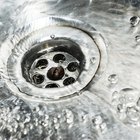
What Are the Benefits of Water ...

How to Bleach Mens' Dress Shirts
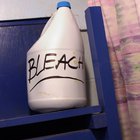
How to Bleach Shorts

How to Whiten White Polyester Pants

How to Get the Gray Stains Out of ...

How to Dye Faded Black Dress Pants

How to Remove Liquid Downy Stains
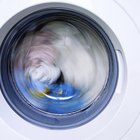
How to Get Color Out of Nylon Fabric

How to Remove Color From a Human Hair ...
How Much Water Should I Drink While ...

How to Turn Pink Clothes White Again
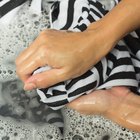
How to Wash & Dry Clothes So They Do ...
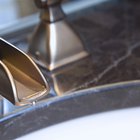
Is Acne Caused by Water Softeners?

How to Get Rid of Static Cling on Silk ...

The Calcium Content of Spirulina

How to Soften Stiff, Starchy Material

How to Wash Viscose Clothing
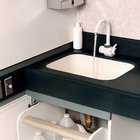
How to Bleach a Shirt by Hand
References
Writer Bio
Arthur Barnhouse has written numerous short stories, contributed content to various websites and was an invited speaker at a university symposium on creative writing. He began writing in 2002 and holds a Bachelor of Arts in English literature from the University of Pittsburgh. Barnhouse has driven across the United States numerous times and draws upon his travel experiences in his writing.
Photo Credits
Jupiterimages/Pixland/Getty Images